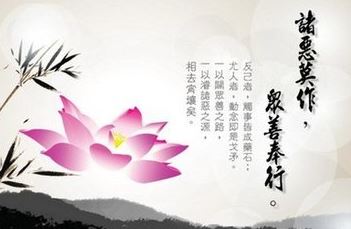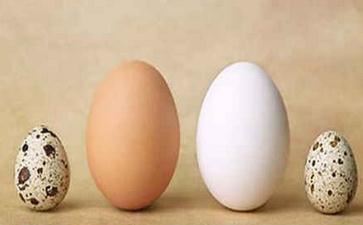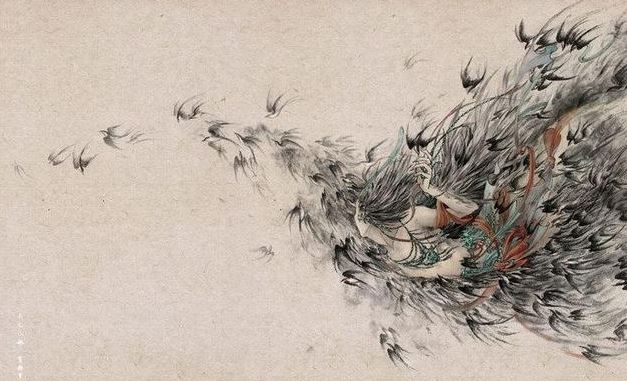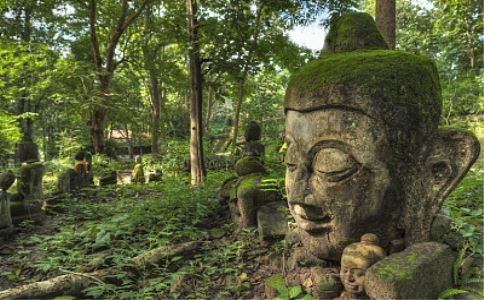周易与中医养生
中医养生是中国传统医学的重要组成部分,它以维护人体健康和平衡为目标,通过调整人体的阴阳、气血、五脏六腑等方面来实现养生保健。而周易作为一部古老而深奥的文化遗产,也能够为中医养生提供一种独特的理论基础。本文将介绍周易与中医养生的关系,探讨它们在养生领域的互补与共生关系。
一、
周易,即《易经》,是中国古代哲学的重要经典之一,被誉为“中华文化的百科全书”。它以“易”为名,意为变化、变易的真谛。周易以阴阳五行为基础,探讨万物变化规律,并将其运用于人的生活和健康方面。与周易相伴的有“修身齐家治国平天下”的思想,注重个体修养和健康管理。
二、
中医养生则是一门博大精深的医学知识体系,强调人与自然的和谐与平衡。它将人体视为一个有机的整体,通过调理人体的阴阳、气血、经络等方面,达到防病抗衰老的目的。中医养生依赖于中医的理论体系和丰富的实践经验,而周易则为中医养生提供了一种哲学思想的支撑。
三、
周易中的阴阳观念与中医养生的“阴阳平衡”理论有着密切的关联。周易认为,阴阳的相互作用和平衡是宇宙万物运行的规律,而中医养生强调人体阴阳的平衡是保持健康的重要因素。通过调整饮食、起居、运动等方面的阴阳平衡,人体才能达到健康的状态。周易中的阴阳观念为中医养生提供了理论指导。
四、
五行学说是中医养生和周易之间的另一个重要联系。中医养生将人体的五脏六腑以及与之对应的五行进行联系,通过调整五行之间的相生相克关系,达到养生的效果。而周易中的五行概念与中医养生的五行学说有着相似之处,它们都认为五行之间的平衡和谐对人体健康至关重要。周易的五行学说为中医养生提供了一种宇宙观的指导。
五、
周易和中医养生在道德伦理方面也存在共通之处。周易注重个体的修身养性,追求道德修养和道德品格的提升。中医养生也强调个体道德修养对健康的影响,认为心态平和、正直宽容等良好的道德品质可以促进身心健康。在道德伦理层面上,周易与中医养生亦有相辅相成的关系。
周易与中医养生存在着深厚的交集和互补。周易以其哲学思想为中医养生提供了理论和伦理基础,为人们提供了一种更加深入的养生保健思路。中医养生则将周易的理论与实践相结合,为周易增添了一种生活化的层面。周易与中医养生的结合为我们提供了更加全面和系统的健康保健方法,值得我们深入探讨和研究。
周易与中医养生易医解密
一、周易与中医养生的渊源
周易和中医养生都是中国古代文化的瑰宝,它们不仅有着深厚的历史底蕴,更是人们智慧和经验的结晶。根据历史的记载,周易的起源可以追溯到公元前11世纪的周朝时期,而中医养生的起源更为久远,可以追溯到几千年前的古代中华文明。两者都体现了古代人们对宇宙运行规律和人体健康的探索,因此有着密切的关联。
二、周易与中医养生的共同理论基础
周易的核心思想是“天人合一”,强调人与自然之间的和谐与平衡。中医养生也主张人体与自然界的协调统一。周易中的“阴阳”概念与中医养生中的“阴阳平衡”有着极为相似的含义。周易将宇宙划分为八卦,而中医养生将人体划分为五脏六腑,二者之间有着明显的对应关系。这些共同的理论基础使得周易与中医养生在实践中可以相互借鉴、互为补充。
三、周易对中医养生的启示
周易中的“易”一词包含了许多含义,其中之一是“变化”。中医养生也注重人体的变化和调节。周易的八卦变化为中医养生提供了一个思考的框架,通过观察人体的变化和病理变化,中医师可以做出正确的诊断和治疗方案。周易的卦象象征着不同的自然元素和气候现象,通过对这些象征的理解,中医师可以根据季节和气候的变化来调整人体的养生方式,以保持身体的健康。
四、中医养生对周易的诠释
中医养生强调平衡饮食、适度运动和良好的情绪状态对健康的重要性。这与周易中的“和合”理念一脉相承。中医养生通过调整饮食结构,使体内的阴阳平衡,以达到身体健康的目的。中医养生还强调养生要因地制宜,因此在不同地域和季节,中医师会根据周围环境和气候的变化,结合周易的八卦理论,为人们提供个性化的养生建议。
五、结语
周易与中医养生是中国古代智慧的结晶,它们在探索人体健康和调节自然界规律方面取得了丰富的经验和成果。周易和中医养生不仅有着共同的理论基础,而且可以相互借鉴、互为补充。通过我们对周易与中医养生的深入了解和研究,我们可以更好地把握人体健康的要素,获得更好的生活质量。正是因为周易和中医养生的智慧与经验的结合,才使得我们的健康之路更加清晰和平衡。
周易与中医养生作为中国古代文化的瑰宝,有着深厚的渊源和共同的理论基础。周易对中医养生的启示使中医师能够根据人体的变化和病理变化做出正确的治疗方案。而中医养生则通过调整饮食结构和地域气候因素,实现对人体健康的调节。通过研究周易与中医养生,我们能更好地把握人体健康的要素,并获得更好的生活质量。周易与中医养生的智慧与经验的结合,使得我们的健康之路更加清晰和平衡。
周易与中医养生成铁智
周易与中医养生成铁智是两个不同领域的理论体系,但它们在养生领域有着密切的联系。周易是中国古代文化的重要组成部分,包含了丰富的哲学思想和养生智慧。中医养生则是中医学的重要组成部分,以维护人体健康为目标。本文将通过定义、分类、举例和比较等方法,阐述周易与中医养生成铁智的相关知识。
正文:
一、周易与中医养生成铁智的定义
周易是古代中国的一部经典著作,包含了易经、易传等内容。其中的养生智慧主要体现在人与自然的关系、阴阳五行的理论以及人体经络的调养等方面。中医养生是中医学的重要内容,通过调整人体的阴阳平衡和经络运行,以达到预防疾病、保持健康的目的。
二、周易与中医养生成铁智的分类
1.人与自然的关系
周易强调人与自然的统一,认为人体是一个小宇宙,与宇宙间的宏观变化相互影响。而中医养生中也注重人与自然的和谐,通过根据不同季节、气候等因素调整饮食、作息等,以适应环境变化,增强身体抵抗力。
2.阴阳五行的理论
周易中的阴阳五行理论认为世界万物都具有阴阳两种相反但又相互依存的属性,而中医中也运用了阴阳五行理论来理解人体的生理和病理变化。中医认为人体阳气盛则人体温高,阴气盛则人体温低,通过调节阴阳平衡来维护人体健康。
3.经络的调养
周易中的经络观念认为人体经络是人体生命活动的通道,对经络的调养可以增加气血的流通,增强体质。中医养生中,经络系统也被广泛应用于理疗、针灸等疗法中,以调节气血的运行,达到养生的效果。
三、周易与中医养生成铁智的举例
1.饮食调养
周易中强调饮食的阴阳平衡,认为食物的性味与人体的阴阳属性相应,通过合理搭配食物,调整体内的阴阳平衡。而中医养生中也注重饮食的调养,在夏季多食用清凉的食物,以调节体温、预防中暑。
2.运动保健
周易中强调身体的运动与宇宙运行的关联,认为适度的运动可以增强体质。中医养生中也提倡适当的运动来保持健康,例如太极拳、气功等,通过调整气血的流通,以达到养生的效果。
四、周易与中医养生成铁智的比较
尽管周易与中医养生有密切的联系,但它们也存在一些区别。周易更注重于哲学思想的探讨和人与宇宙的关系,而中医养生更注重于人体的生理和病理变化。周易在养生中更加注重个体的情感和内在修养,而中医养生更倾向于通过具体的方法和技巧来实现养生效果。
周易与中医养生成铁智在养生领域具有重要的价值和应用。周易强调人与自然的关系、阴阳五行的理论以及经络的调养,而中医养生则运用这些理论来维护人体健康。通过学习和应用周易与中医养生的知识,我们可以更好地了解人体的运行机制,以及如何通过调整生活方式和养生方法来提升自身的健康水平。
The Interplay Between Zhouyi and Traditional Chinese Medicine in Nurturing a Vigorous Intellect
Introduction:
Zhouyi and traditional Chinese medicine (TCM) are two distinct fields of knowledge, yet they are closely connected in the domain of healthcare. Zhouyi is an essential component of ancient Chinese culture, encompassing rich philosophical and health wisdom. TCM, on the other hand, is an integral part of traditional Chinese medicine, aiming to maintain human health. This article will utilize methods such as definition, classification, examples, and comparisons to elaborate on the relevant knowledge of the interplay between Zhouyi and TCM in nurturing a vigorous intellect.
Text:
1. Definition of the Interplay between Zhouyi and TCM in Nurturing a Vigorous Intellect
Zhouyi is a classic work in ancient China, including the Book of Changes and its commentaries. Its health wisdom mainly manifests in the relationship between humans and nature, the theory of Yin and Yang and the Five Elements, as well as the nurturing of meridian system. TCM, as an important component of traditional Chinese medicine, aims to prevent diseases and maintain health by adjusting the balance of Yin and Yang and regulating meridian circulation.
2. Classification of the Interplay between Zhouyi and TCM in Nurturing a Vigorous Intellect
1) The Relationship between Humans and Nature
Zhouyi emphasizes the unity of humans and nature, regarding the human body as a microcosm that is influenced by macroscopic changes in the universe. TCM also emphasizes the harmony between humans and nature, adjusting diet and daily routines based on different seasons and climates to adapt to environmental changes and enhance the body's resistance.
2) Theory of Yin and Yang and the Five Elements
The theory of Yin and Yang and the Five Elements in Zhouyi posits that all things in the world possess Yin and Yang attributes, which are opposite but interdependent. TCM also employs the theory of Yin and Yang and the Five Elements to understand the physiological and pathological changes in the human body. For instance, TCM believes that an abundance of Yang in the body leads to higher body temperature, while an abundance of Yin leads to lower body temperature. By regulating the balance of Yin and Yang, TCM aims to maintain human health.
3) Nurturing the Meridian System
According to Zhouyi, the meridian system is the vital channel for human life activities, and its nurturing enhances the circulation of Qi and blood, strengthening one's constitution. TCM widely applies the concept of the meridian system in therapies such as physiotherapy and acupuncture to regulate the circulation of Qi and blood, resulting in health preservation.
3. Examples of the Interplay between Zhouyi and TCM in Nurturing a Vigorous Intellect
1) Dietary Regulation
Zhouyi emphasizes the balance of Yin and Yang in diet, suggesting that the nature and flavor of food correspond to the Yin and Yang attributes of the human body. By appropriately combining foods, the balance of Yin and Yang within the body can be adjusted. TCM also emphasizes dietary regulation. For example, during summer, it is advisable to consume cooling foods to regulate body temperature and prevent heat stroke.
2) Exercise for Health Preservation
Zhouyi emphasizes the connection between physical exercise and the cosmic cycle, asserting that moderate exercise enhances one's constitution. TCM also advocates suitable exercise to maintain health, such as Tai Chi and Qigong, which regulate the circulation of Qi and blood, achieving the goal of health preservation.
Conclusion:
In conclusion, the interplay between Zhouyi and TCM has significant value and application in the field of health preservation. Zhouyi emphasizes the relationship between humans and nature, the theory of Yin and Yang and the Five Elements, as well as the nurturing of the meridian system. TCM applies these theories to maintain human health. By learning and applying the knowledge of Zhouyi and TCM, we can better understand the operating mechanisms of the human body and how to improve our health through lifestyle adjustments and health preservation methods.
发布于 2024-07-25 08:31微信分享
扫描二维码分享到微信或朋友圈



















